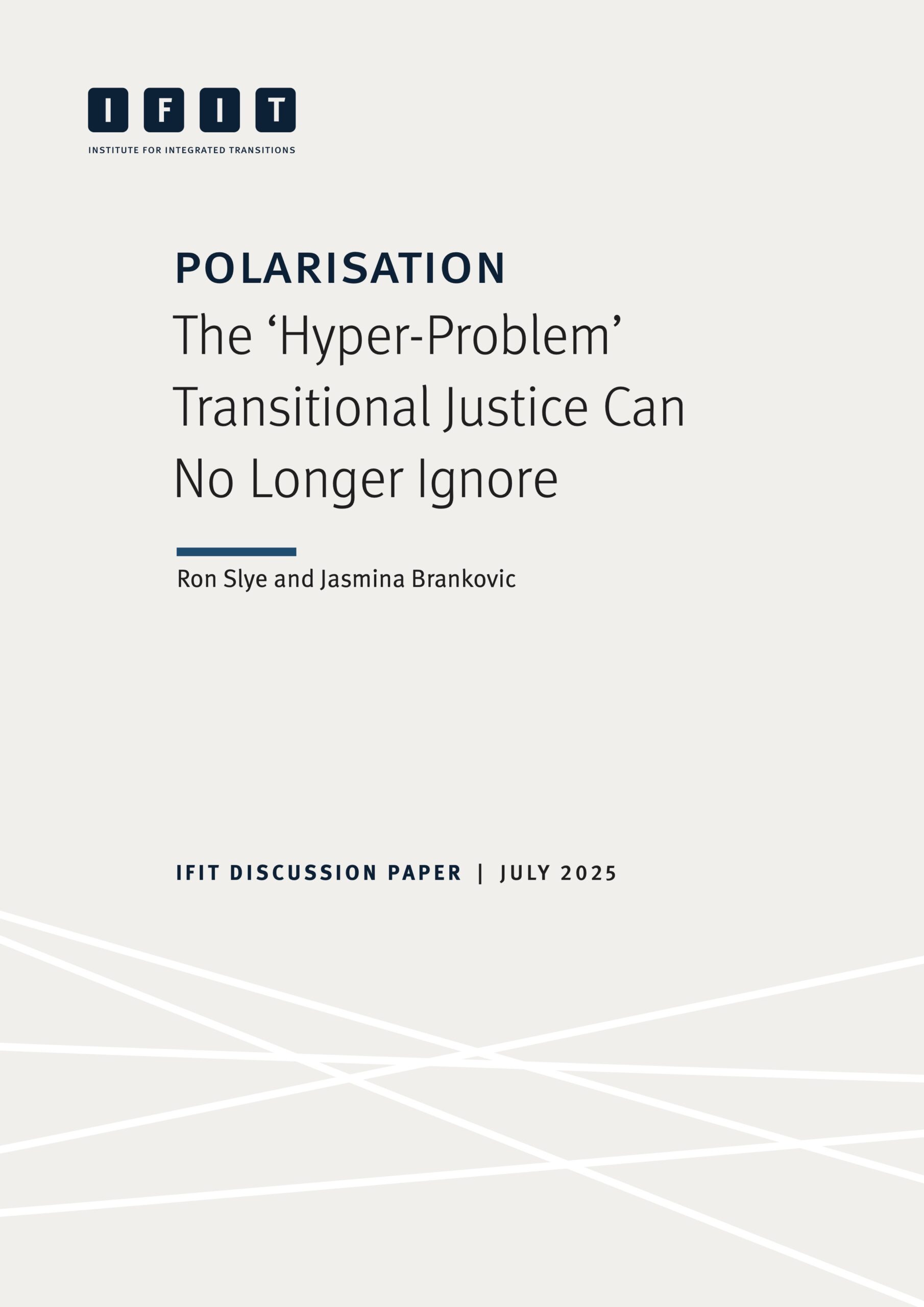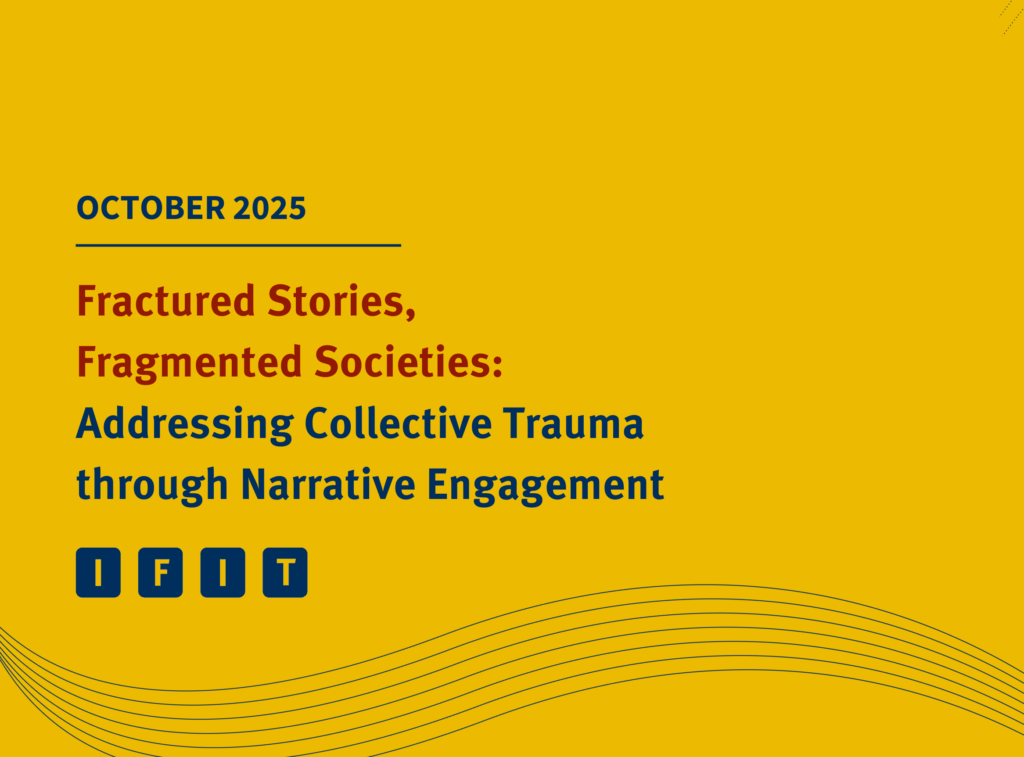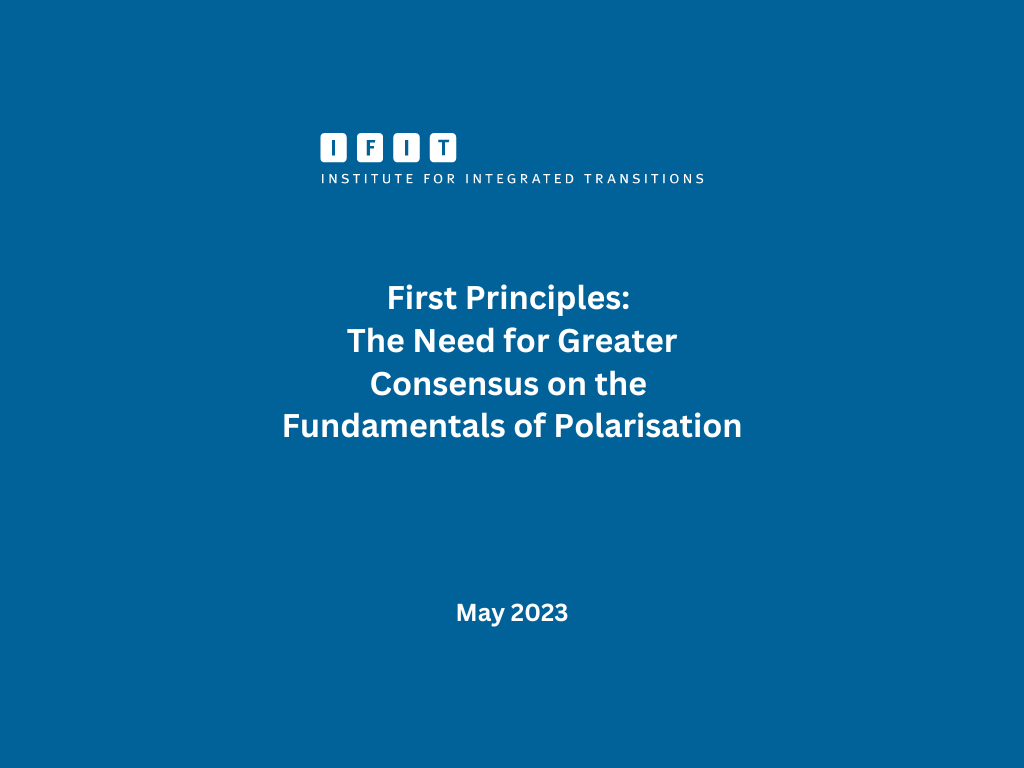Publication
/ Narratives
Jul 2025
Polarisation: The ‘Hyper-Problem’ Transitional Justice Can No Longer Ignore
As a ‘hyper-problem’ that makes political and social challenges harder to resolve, polarisation is both a barrier to addressing a violative past and a leading indicator of future risks of conflict and violence. Polarisation can decrease social cohesion, contribute to a culture of violence and impunity, and eventually incite mass atrocity, making it a pressing concern for transitional justice – a field designed to address such violations. Yet, transitional justice actors have largely, and dangerously, ignored polarisation to date.
This IFIT discussion paper compares transitional justice and depolarisation, identifying correlations between their respective objectives and tools. It examines ways in which transitional justice and polarisation act as mutual risk multipliers, creating negative feedback loops that produce additional harms and make future attempts at transition more difficult.
The paper proposes backward-, present- and future-looking approaches for ensuring transitional justice interventions account for polarisation, ranging from technological tools to narrative interventions and policy changes. It provides a conceptual framework for thinking about this critical but underexamined relationship, opening the door for polarisation-sensitive transitional justice.
The DOI registration ID for this publication is: https://doi.org/10.5281/zenodo.16735681
You may also be interested in
As a ‘hyper-problem’ that makes political and social challenges harder to resolve, polarisation is both a barrier to addressing a violative past and a leading indicator of future risks of conflict and violence. Polarisation can decrease social cohesion, contribute to a culture of violence and impunity, and eventually incite mass atrocity, making it a pressing concern for transitional justice – a field designed to address such violations. Yet, transitional justice actors have largely, and dangerously, ignored polarisation to date.
This IFIT discussion paper compares transitional justice and depolarisation, identifying correlations between their respective objectives and tools. It examines ways in which transitional justice and polarisation act as mutual risk multipliers, creating negative feedback loops that produce additional harms and make future attempts at transition more difficult.
The paper proposes backward-, present- and future-looking approaches for ensuring transitional justice interventions account for polarisation, ranging from technological tools to narrative interventions and policy changes. It provides a conceptual framework for thinking about this critical but underexamined relationship, opening the door for polarisation-sensitive transitional justice.
The DOI registration ID for this publication is: https://doi.org/10.5281/zenodo.16735681




